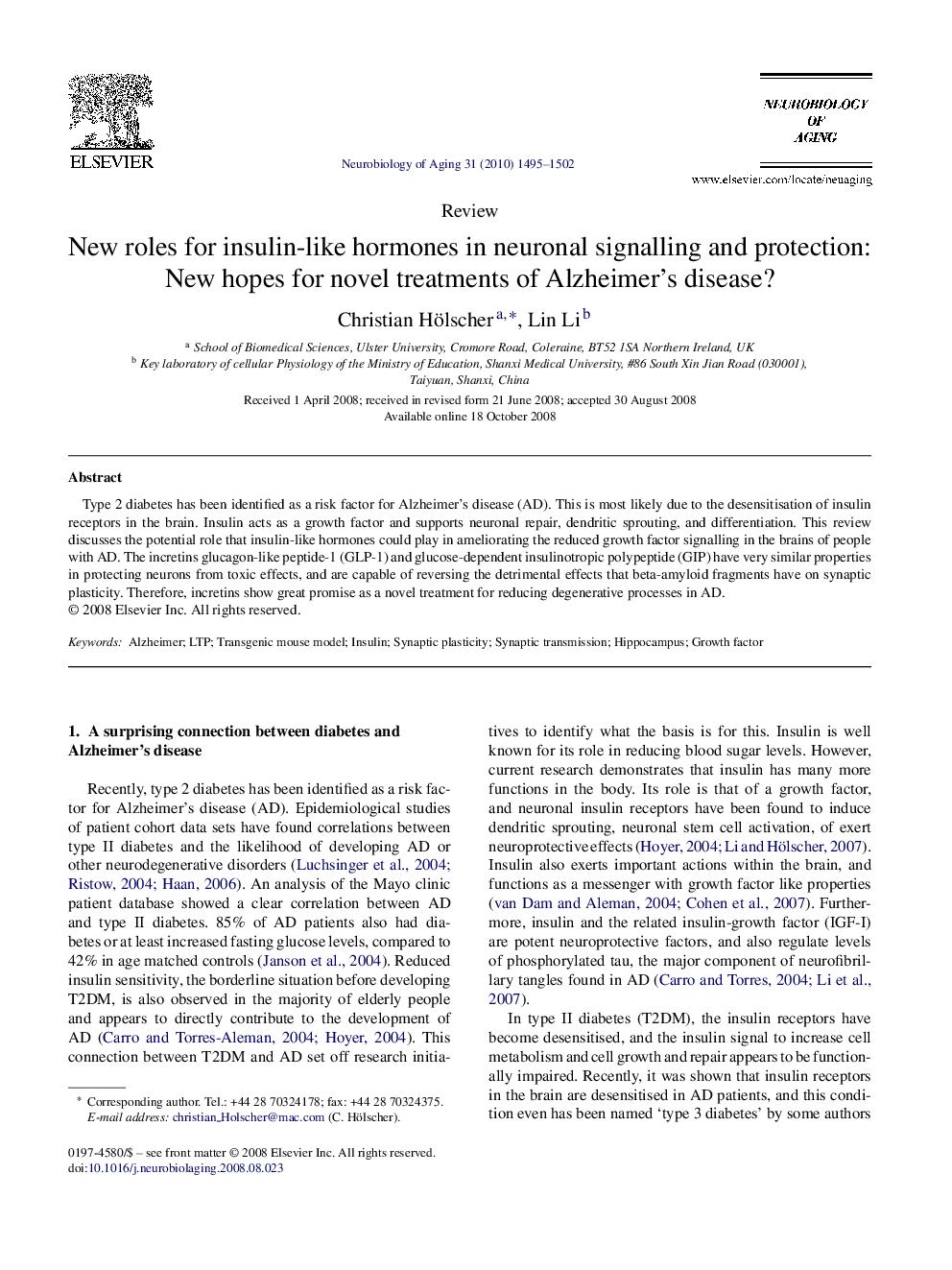| Article ID | Journal | Published Year | Pages | File Type |
|---|---|---|---|---|
| 330208 | Neurobiology of Aging | 2010 | 8 Pages |
Type 2 diabetes has been identified as a risk factor for Alzheimer’s disease (AD). This is most likely due to the desensitisation of insulin receptors in the brain. Insulin acts as a growth factor and supports neuronal repair, dendritic sprouting, and differentiation. This review discusses the potential role that insulin-like hormones could play in ameliorating the reduced growth factor signalling in the brains of people with AD. The incretins glucagon-like peptide-1 (GLP-1) and glucose-dependent insulinotropic polypeptide (GIP) have very similar properties in protecting neurons from toxic effects, and are capable of reversing the detrimental effects that beta-amyloid fragments have on synaptic plasticity. Therefore, incretins show great promise as a novel treatment for reducing degenerative processes in AD.
